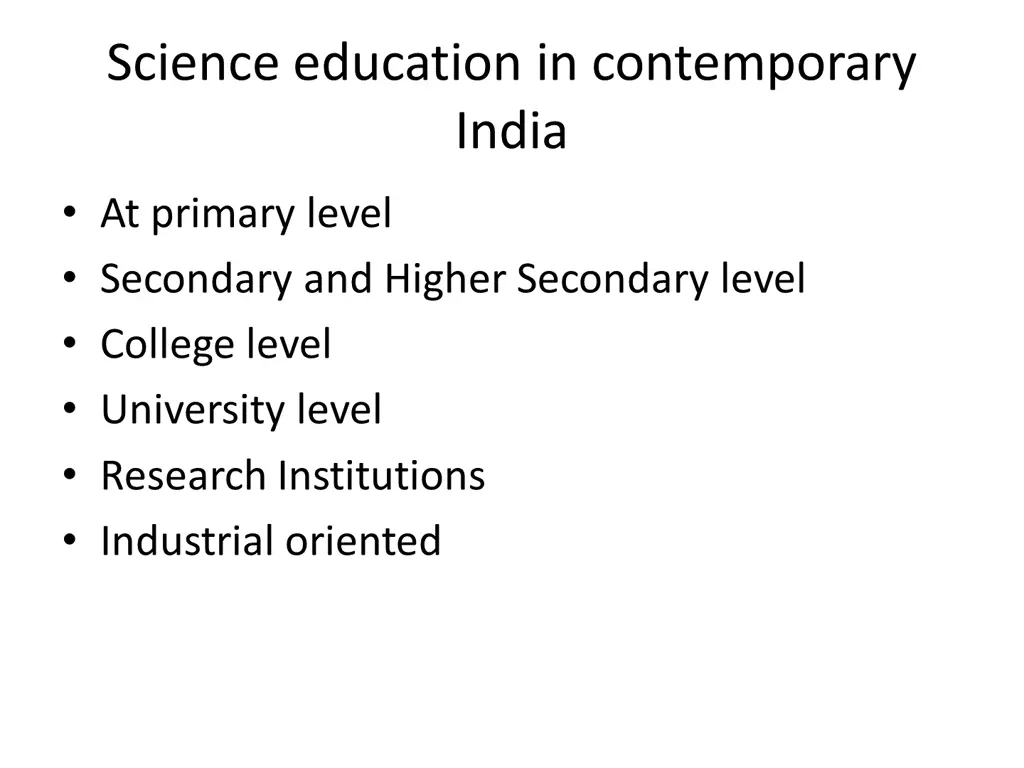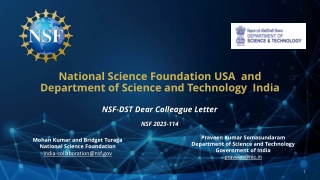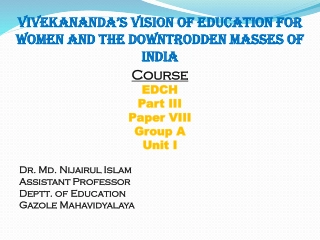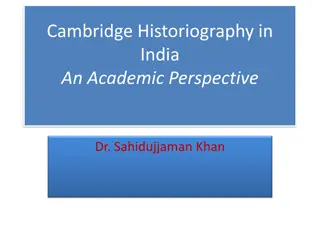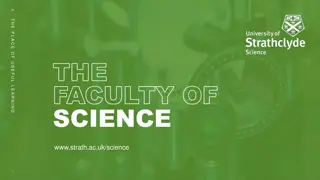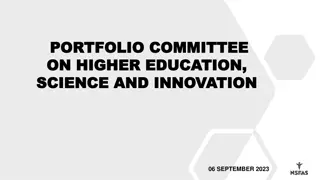Science education in contemporary India
The development of science education in India across different educational levels, from primary to university and research institutions. It highlights key figures, historical milestones, and government policies that have shaped science education in the country. The article also discusses the importance and benefits of science education to society, including its contribution to economy, health, innovation, and global challenges.
Download Presentation
Please find below an Image/Link to download the presentation.
The content on the website is provided AS IS for your information and personal use only. It may not be sold, licensed, or shared on other websites without obtaining consent from the author. Download presentation by click this link. If you encounter any issues during the download, it is possible that the publisher has removed the file from their server.
- Science education
- India
- development
- landmarks
- government policies
- primary level
- secondary level
- higher education
- research institutions
- societal benefits
Presentation Transcript
Science education in contemporary India At primary level Secondary and Higher Secondary level College level University level Research Institutions Industrial oriented
LANDMARKS IN THE DEVELOPMENT OF SCIENCE EDUCATION Roger Bacon was the first to lay emphasis on the value of experiments and inductive enquiry. Galileo Galilei, William Harvey and Audreas Vesailus also have contributed significantly for the growth of science education. emphasized the importance of objects and pictures in teaching. The establishment of the Royal Society in 1664 is a landmark in the history of science education. During the 17th century various scientific academies were established
During the 17th century various scientific academies were established. The industrial revolution that started in the 18th century brought science closer and closer to the common man. The University of London was opened in 1827, where natural science was taught T.A.Guxely, John Tyndall and Faraday are the three eminent scientists who urged for the spread of science education during this period
Science gained a place in the school curriculum by its introduction for the first time at Rugby school of England in 1849. Botany, Geology, Physics and Chemistry were started in that school. The most outstanding contribution to the teaching of science towards the close of the 19th century was that of H.E Amstrong. The Heuristic method of teaching was advocated by him. In 1916 the British Government appointed a committee under the chairmanship of Sir.J.J.Thomson to enquire into the position of natural science in the educational The 20th Century is the age of rapid propagation of science education all over the world
LANDMARKS IN THE DEVELOPMENT OF SCIENCE EDUCATION INDIA Report of the secondary education commission (1953) All India seminars on teaching science (1956) National scientific policy resolution (1958) Indian parliamentary and scientific committee was set up in 1961 under the chairmanship of Shri.Lal Bahadur Shastri.
National council of educational research and training (NCERT) (1961) has a separate department of science education Indian education commission (1964-66) National policy on education (1986) Navodaya vidyalays were conceived in 1986 by Rajiv Gandhi. The scheme aims at setting up well equipped well staffed schools in rural areas, almost one in every district to provide better quality science education to the talented children.
University grants commission The University Grants Commission (UGC) of India is a statutory organization set up by Union government in 1956, for the coordination, determination and maintenance of standards of university education. Inter university centers One of the most innovative steps taken by the UGC for promoting excellence was the setting up of inter university centers with most modern experimental facilities or providing national facilities such as accelerators and nuclear reactors to students and teachers from various universities
Institute of technology- AICTE. Indian institute of science Indian Institute of Science (IISc) is a public institution for scientific and technological research and higher education located in Bangalore, India. It was established in 1909. It acquired the status of a Deemed University in 1958. Advance centres for science and technology a few senior scientists and industrialists have proposed setting up advanced centers for science and technology. These are composite science and technology education and research centers
Arguments in favour of Science Education OBSERVEATION VALUE GUIDANCE VALUE SCIENTIFIC VALUE CULTURAL VALUE UTILITARIAN VALUE INTELLECTUAL VALUE JUDGEMENTAL VALUE DISCIPLINARY VALUE
USEFULNESS OF SCIENCE TO THE SOCIETY Science produces more responsible citizens. Science helps to build a strong economy. Science contributes to global health. Science contributes to a informed decisions that impact the world. Science ensures future support of scientific research and advancements. Science improves the quality of daily life, underpins prosperity and increases our readiness to face the challenges of the future. Science helps us to become an Innovative Nation
Science will help us to address the main challenges we face as a nation and as a planet: Tackling and adapting to climate change Global security and international terrorism Rising populations and the consequent pressure on food, water and other natural resources
RECOMMENDATION OF VARIOUS COMMISION The Indian Education Commission Kothari commission Curriculum Framework on Teacher Education All India Council for Teacher Education
Forest Research Institutes in India Botanical Survey of India, Kolkata Zoological Survey of India, Kolkata Forest Survey of India, Dehra Dun Ministry of Environment, Forest and Climate Change Govind Ballabh Pant Institute of Himalayan Environment & Development, Almora Indian Institute of Forest Management, Bhopal Indian Plywood Industries Research and Training Institute, Bangalore Wildlife Institute of India, Dehradun
Centre for Environmental Studies Center for Environmental Nuclear Research (CENR) Center for Environmental Planning and Technology (CEPT) Indian Agricultural Research Institute (IARI) National Environmental Engineering Research Institute (NEERI) The Energy and Resources Institute (TERI) Centre for Environment Education (CEE) Sri Paramakalyani Centre for Environmental Sciences (SPKCES) Centre for Science and Environment (CSE)
Ecological Sciences (Indian Institute of Science, Bangalore); Salim Ali Centre for Ornithology and Natural History (SACON), Coimbatore; Centre for Environmental Management of Degraded Ecosystems, University of Delhi, Delhi Tropical Botanic Garden and Research Institute, Thiruvananthapuram, Kerala. The Ministry also has established the Central Pollution Control Board, the National Afforestation and Eco-development Board and the National River Conservation Directorate.
